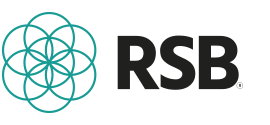RSB is Committed to Building Trust in the Waste and Residues Market

RSB has been reflecting on the recent criminal investigation of a Dutch biodiesel producer (not RSB-certified). The investigation centres on the producer potentially fraudulently selling more of its diesel as ‘sustainable’ than was possible, based on the volumes of feedstock procured. We will be following the investigation closely to see if there are any lessons that can be learned and applied to ensure that RSB continues to inspire trust with its many partners and stakeholders from across the bioeconomy – and broader – community.
We are pleased to see that law enforcement agencies are taking potential criminal activity in the waste and residue market extremely seriously and are hopeful that any fraudulent operators will face the full force of the law.
This investigation underlines the importance of closely monitoring the source and volumes of waste and residue material, and the use of robust, 3rd party systems to reduce the risk of fraudulent activities in such a profitable market. Given the high risk of fraud in the market, RSB has a range of measures in place to guard against it.
These include, but are not limited to:
- Individual on-site audits of independent first collectors;
- Excluding operators that have been suspended by other certification schemes and evaluating the certification history of all operators;
- Annual independent third-party audits, following mandatory procedures;
- Requiring access to first collector sites;
- Requiring commitment to traceability from the first collector onwards;
- Any point of origin providing more than 10 metric tons per month must be audited on site (risk-based sampling applies);
- All supply chain elements are audited (risk-based sampling applies);
- Calculating the risk-based sample as at least the square root; and
- Allowing a maximum mass-balance period of three months.
Oversight of these measures, and the certification bodies and auditors who check them, is ensured via regular witness and compliance audits. RSB regularly reviews the effectiveness of its assurance system – and broader certification system – to ensure it is well-positioned to lower the risk of abuse.
The full impact of the criminal activity currently under investigation unfortunately goes well beyond the financial fraud and abuse of systems put in place to regulate this emerging market – the cost to society and the environment will be higher. The promise of real emissions reductions from alternative fuels has been undermined, and we now more than ever – as a community of producers, suppliers and users – need to ensure consumer trust in the power of circular and bio-based solutions to bring about a meaningful transition to a low or zero carbon economy.
